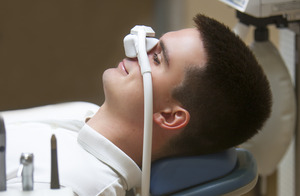
Sedation dentistry has long been hailed as a boon for individuals grappling with dental anxiety. However, its benefits extend far beyond calming nerves. In recent years, dentists have increasingly embraced sedation techniques for various purposes beyond alleviating anxiety. Let’s delve into the versatile applications of sedation dentistry that go beyond merely soothing fearful patients.
Complex Procedures Made Simpler
Sedation dentistry enables dentists to perform complex procedures with ease and precision. For patients requiring extensive dental work or those with a low pain threshold, sedation can make lengthy appointments more manageable. This is particularly beneficial for individuals undergoing procedures like dental implant placements, root canals, or wisdom tooth extractions. By inducing a relaxed state, sedation allows dentists to work more efficiently while ensuring patient comfort. Consequently, patients experience less discomfort and are more likely to comply with treatment plans, promoting better oral health outcomes.
Treatment of Special Needs Patients
Individuals with special needs often face unique challenges when it comes to dental care. For these patients, routine dental visits can be daunting, leading to increased anxiety and difficulty in receiving necessary treatments. Sedation dentistry offers a solution by providing a means to facilitate dental care for individuals with special needs. By administering appropriate sedatives, dentists can help these patients relax during examinations and procedures, ensuring a more comfortable and less stressful experience. Sedation enables dentists to deliver necessary treatments effectively while minimizing the potential for disruptive behaviors or sensory sensitivities common among special needs patients. This approach not only promotes better oral health outcomes but also enhances the overall quality of life for individuals with diverse needs, ensuring they receive the dental care they require in a supportive and accommodating environment.
Management of Gag Reflex
For some individuals, a hypersensitive gag reflex can make dental procedures challenging and uncomfortable. Sedation dentistry proves instrumental in managing this issue effectively. By inducing a state of relaxation, sedatives help reduce the sensitivity of the gag reflex, allowing dentists to work without triggering discomfort or interruptions. Patients no longer have to endure the stress and embarrassment associated with a heightened gag reflex during dental appointments. This not only enhances the efficiency of procedures but also ensures a more pleasant experience for individuals prone to gagging.
Sedation dentistry offers a myriad of benefits beyond its traditional role in assuaging dental anxiety. From simplifying complex procedures to facilitating pediatric dentistry and managing gag reflexes, its versatility makes it a valuable tool in modern dentistry. By prioritizing patient comfort and facilitating smoother dental experiences, sedation dentistry continues to revolutionize oral healthcare, catering to a diverse range of patient needs.
About the Author
Dr. John White, a native of Asheville, embodies the essence of returning home to serve his beloved community. Graduating from the University of North Carolina with a dental degree, Dr. White pursued extensive post-doctoral training at Wake Forest University’s Baptist Hospital and Bowman Gray School of Medicine. Dr. White’s dedication to education culminated in earning a Mastership in the Academy of General Dentistry, a distinction held by less than 1% of U.S. dentists. He champions comprehensive care, reflecting over 1,000 hours of learning at the esteemed Dawson Academy.
If you have any questions about sedation dentistry, he can be reached at his website or by phone at (828) 684-3020.
